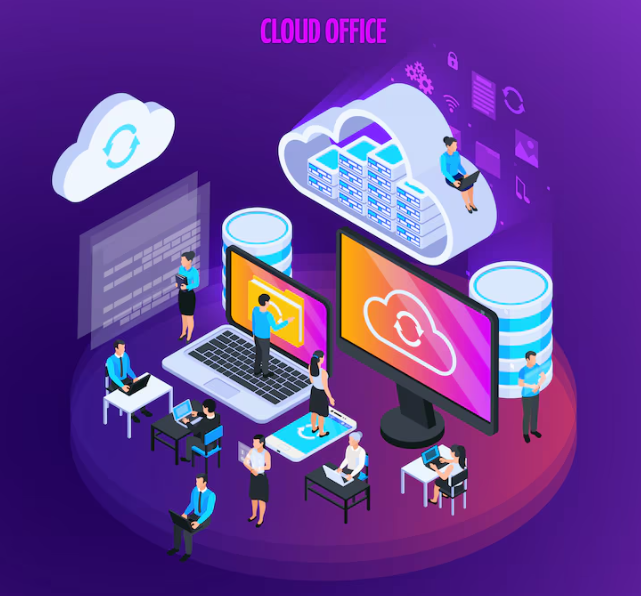Introduction
In recent years, the concept of cloud computing has revolutionized the way we store, access, and process data. One of the latest developments in this space is the emergence of Cloud PCs, which promise to redefine the traditional desktop computing experience.
Cloud PCs leverage the power of remote servers and high-speed internet connectivity to deliver a virtualized desktop environment that can be accessed from anywhere, on any device. In this article, we’ll explore the concept of Cloud PCs, examine their benefits and challenges, and discuss their potential impact on the future of computing.
What is a Cloud PC?
A Cloud PC, also known as a virtual desktop or Desktop as a Service (DaaS), is a cloud-based computing solution that provides users with access to a fully functional desktop environment hosted on remote servers. Instead of running applications and storing data locally on a physical device, users interact with their desktop environment through a web browser or dedicated client software, with all processing and data storage handled in the cloud.
Components of a Cloud PC
A Cloud PC typically consists of the following components:
Virtual Desktop Infrastructure (VDI)
The backbone of a Cloud PC is the Virtual Desktop Infrastructure, which comprises the hardware, software, and networking infrastructure needed to host and manage virtual desktop instances. VDI solutions enable multiple users to access their virtual desktops concurrently, with each user having their own isolated environment.
Remote Servers
Cloud PCs rely on powerful remote servers to host virtual desktop instances and handle computing tasks. These servers are equipped with high-performance CPUs, ample memory, and fast storage to ensure a smooth and responsive user experience.
Client Devices
Users can access their Cloud PC from a variety of client devices, including desktop computers, laptops, tablets, and smartphones. Client devices connect to the virtual desktop environment over the internet, allowing users to access their applications, files, and resources from anywhere with an internet connection.
Benefits of Cloud PCs
Cloud PCs offer several advantages over traditional desktop computing solutions, making them an attractive option for individuals, businesses, and organizations alike. Here are some key benefits of Cloud PCs:
Accessibility
One of the primary advantages of Cloud PCs is their accessibility. Since the desktop environment is hosted in the cloud, users can access their virtual desktops from anywhere, at any time, using any internet-connected device. This flexibility enables remote work, collaboration, and productivity without being tied to a specific physical location.
Scalability
Cloud PCs are highly scalable, allowing organizations to easily add or remove virtual desktop instances as needed to accommodate changing demand. Whether scaling up to support a growing workforce or scaling down during periods of low activity, Cloud PCs offer unmatched flexibility and cost-effectiveness.
Security
Security is a top priority for any computing environment, and Cloud PCs are no exception. By centralizing data storage and processing in secure data centers, Cloud PC providers can implement robust security measures to protect against data breaches, malware, and other cyber threats. Additionally, since data is not stored locally on client devices, the risk of data loss due to theft or hardware failure is greatly reduced.
Cost-Effectiveness
From a cost perspective, Cloud PCs offer several advantages over traditional desktop computing solutions. By eliminating the need for on-premises hardware infrastructure and reducing IT management overhead, Cloud PCs can result in significant cost savings for businesses. Additionally, Cloud PC providers typically offer subscription-based pricing models, allowing organizations to pay only for the resources they use on a per-user basis.
Challenges and Considerations
While Cloud PCs offer numerous benefits, they also present some challenges and considerations that organizations should be aware of:
Network Dependence
Since Cloud PCs rely on internet connectivity to access the virtual desktop environment, network reliability and performance are critical factors. Organizations must ensure they have robust internet infrastructure in place to provide users with a seamless and responsive experience. Additionally, users in remote or underserved areas may experience latency and connectivity issues when accessing their Cloud PCs.
Data Privacy and Compliance
Hosting sensitive data and applications in the cloud raises concerns around data privacy and compliance with regulations such as GDPR and HIPAA. Organizations must carefully evaluate the security and compliance capabilities of Cloud PC providers and implement appropriate measures to safeguard sensitive information and maintain regulatory compliance.
Vendor Lock-In
Choosing a Cloud PC provider locks organizations into a specific vendor’s ecosystem, making it difficult to switch providers in the future. Organizations should carefully consider vendor lock-in risks and evaluate the long-term implications of their decision when selecting a Cloud PC provider.
Conclusion
Cloud PCs represent a paradigm shift in the way we think about desktop computing, offering unparalleled flexibility, scalability, and accessibility. By harnessing the power of cloud computing, organizations can empower their workforce to work from anywhere, streamline IT operations, and reduce costs. However, adopting Cloud PCs requires careful planning and consideration of factors such as network reliability, security, and vendor lock-in. With proper planning and implementation, Cloud PCs have the potential to revolutionize the way we work and collaborate in the digital age.
